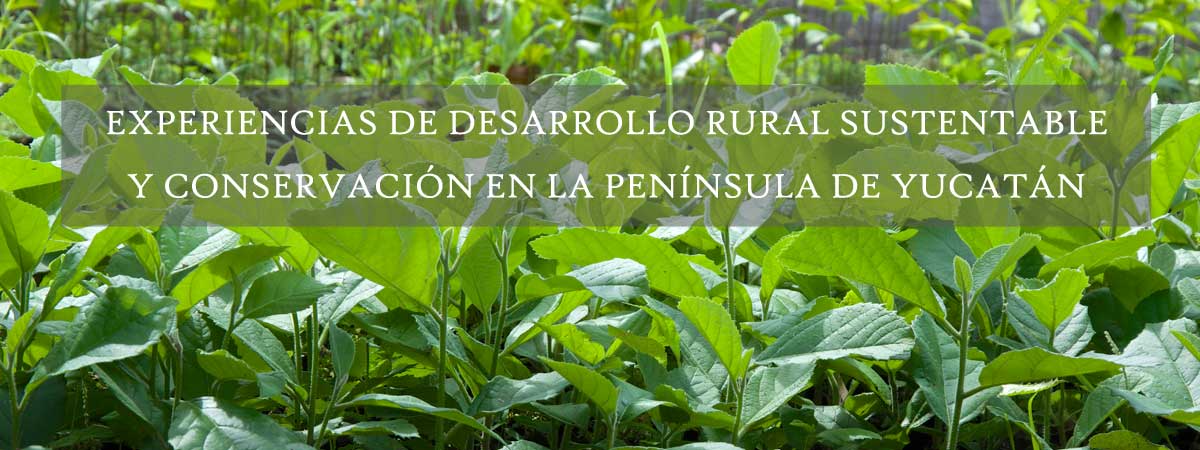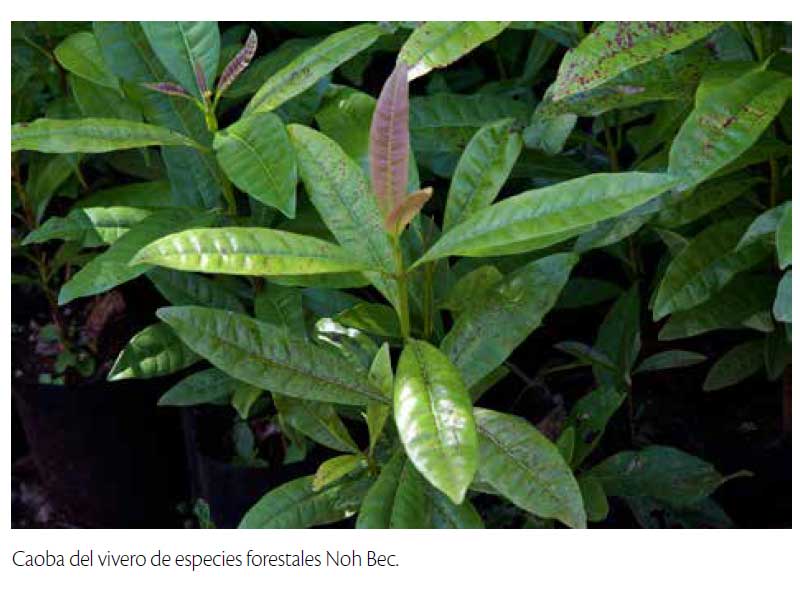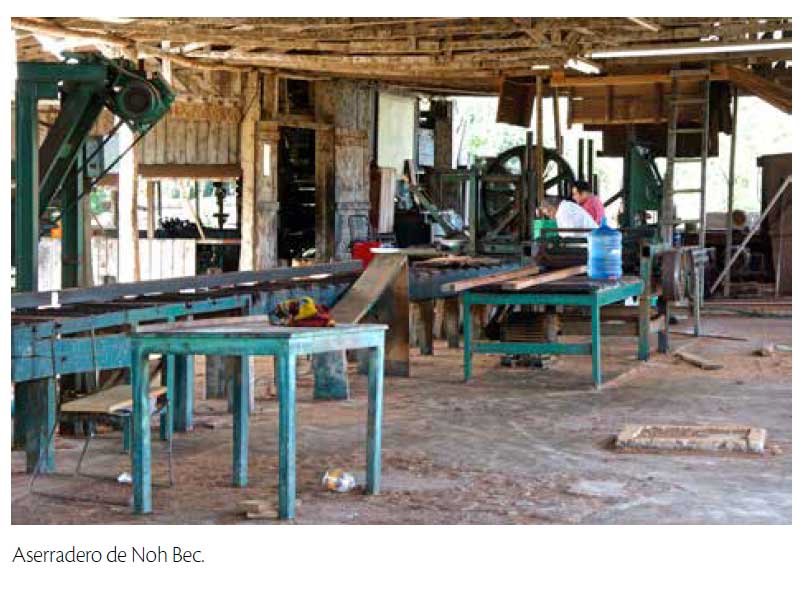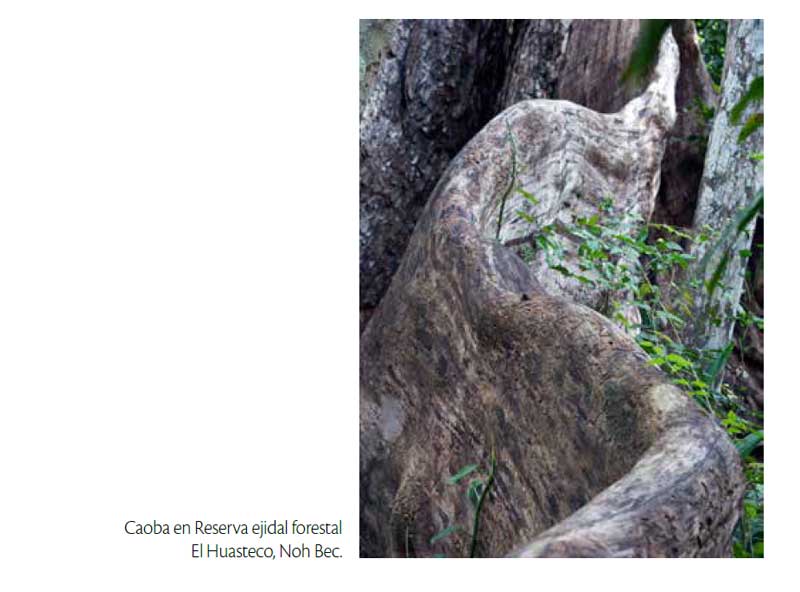An alliance of ejidos for sustainable forest management

Sustainable forest management has proven one of the most effective approaches to forest conservation. However, when this activity becomes unprofitable, degradation and deforestation start to take over. Local communities need to sustain their livelihoods through other means and resort to land use changes for agriculture and ranching. Herein lays the importance of sustaining these efforts in the forests of Quintana Roo through the promotion of cost-effective management practices and a clear connection to markets. In this context and with the support of organizations like Trópica Rural Latinoamericana AC and U'yo'olché AC, five ejidos in southern Quintana Roo have taken the initiative to form an Alliance of Forest Ejidos with the clear aim of giving new impetus to the activity, convinced that forest management is one of the most effective conservation tools in the Mayan Forest.
In 2009 Abraham was treasurer in the ejido; by then they were exporting wood to Sweden and Germany. In 2008, they obtained FSC certification for mahogany, blackwood and ciricote wood and began exporting to the United States, Japan and Italy. Then the “golden age” was challenged by unforeseen events that radically challenged forest management, says Claudia Palafox from TRL, Hurricane Dean hit Quintana Roo in 2007 and almost all the management programs of the five forest ejidos had to be renewed: much forest biomass had been lost and the usable volumes were no longer the same. Not all the ejidos were affected equally, but in that year there was also a severe drought that resulted in large wildfires. This context, matched with lower timber volumes, increased operating costs due to increased diesel costs and a fall in the price of wood, created a costly business in a highly competitive market. Don Elías Be Cituk, former president of the ejido Felipe Carrillo Puerto, remarks: "It was clear we needed join forces, organize beyond ejidos and agree on timber prices, so in 2011 we began to think of the creation of an Alliance of Forest Ejidos". "The ejidos realized they needed to be united to face common problems," said José Antonio Arreola Palacios, Director of U'yo'olché, "because although the essence is forest management, there are issues related to agriculture, administrative and tax matters that would be more convenient to work in a coordinated manner". "For example, explains Don Elías, environmental impact studies are very expensive, and if we are united we can do one that covers the five ejidos. The same applies for certification from the Forest Stewardship Council (FSC), granted to forest operations that meet environmental, economic and social standards. Today only the ejido Caobas has it, which is not yet part of the alliance, and Noh Bec; while Petcacab is in the process of obtaining it this year".
During the year 2014 a process of appointing delegates from each ejido through assemblies took place, explains Claudia Palafox. As it is a union of ejidos it will be managed as a meeting with their delegates, who in turn are the presidents of the five ejidos. This structure would give transparency to the alliance, in part because decisions cannot be unilateral. While the alliance has an executive director who manages it, decisions are taken by consensus by the board of directors, composed of the presidents of the ejidos; delegates are informed and they carry information to the ejido assemblies. Mr. Elías Be Cituk was one of the initiators of the alliance in the ejidos, says Clementino, current executive president of the alliance, but it has been a long road for it to become consolidated. "The job is still not finished, but it already is in the public records and we have approval from taxing authorities; in the early days of 2015, the account was opened and we began operating as the Mayan Forest Alliance of Quintana Roo". "The alliance is already a fact, mentioned Don Clementino, nobody objected to the process, we all injected optimism in the meetings, we always knew it was something that would benefit the five ejidos". "Some forest ejidos have been disappointed with forest management activities," said Arreola, "because they no longer have the timber volumes they did 40 years ago." The reasons behind this decrease in production lie in resource management techniques, industry and market dynamics, and in other aspects that may not have been adequately integrated in the strategies of some ejidos. It has been fully demonstrated that the ejidos that have good forest management are the ones who maintain a healthy forest. "There are many nearby ejidos that have no management plan and depleted their resources, that is why through good forest management we not only conserve the resource, but also the livelihoods of communities , which in turn generated the incentive to avoid losing it." It is very important to give new impetus to forestry, and the alliance is an ideal platform to accomplish it.
|






















